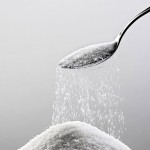
There is a well-established association between sugar and dental caries which was reinforced in a recent systematic review by Moynihan and Kelly (Dental Elf 12th Dec 2013). S ugar-sweetened beverages (SSB) which have sucrose (table sugar), high-fructose corn syrup or fruit- juice concentrates, either as purchased or added after purchase have seen sales and consumption [read the full story…]

